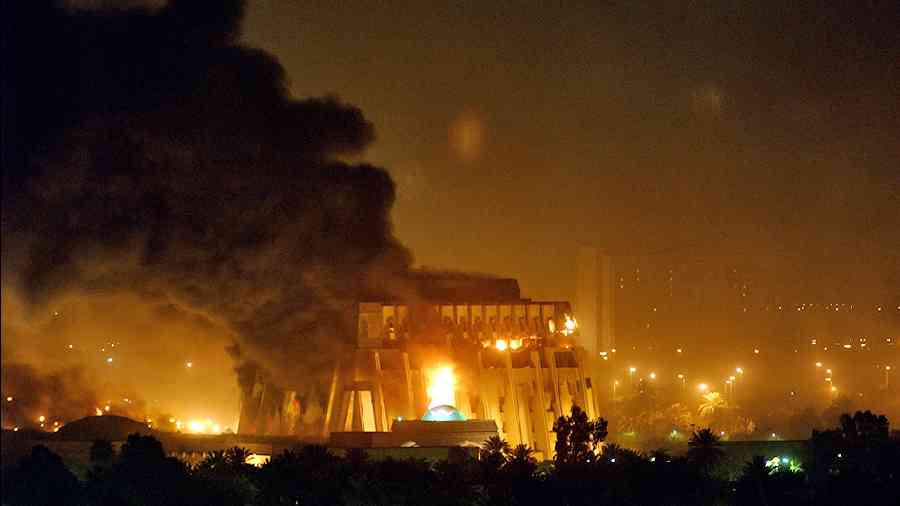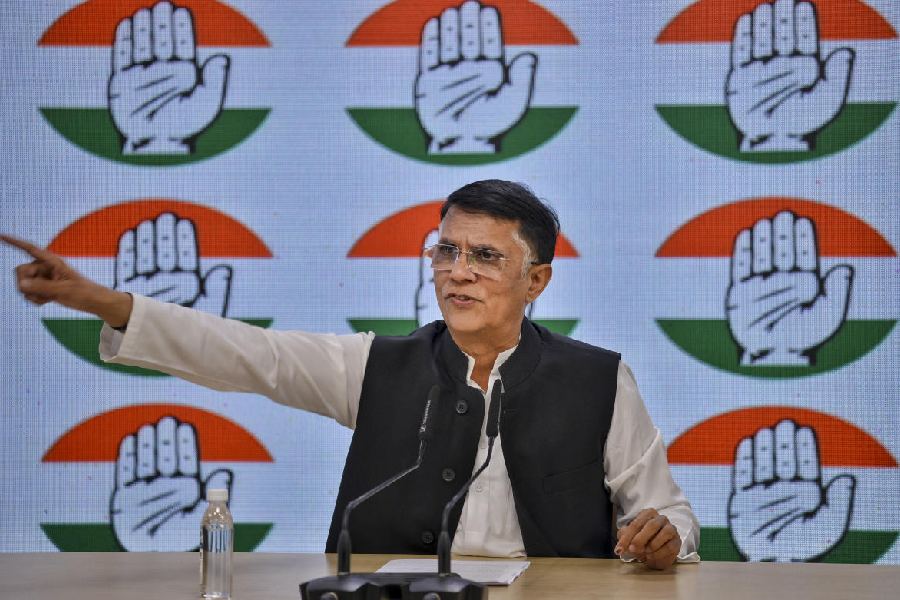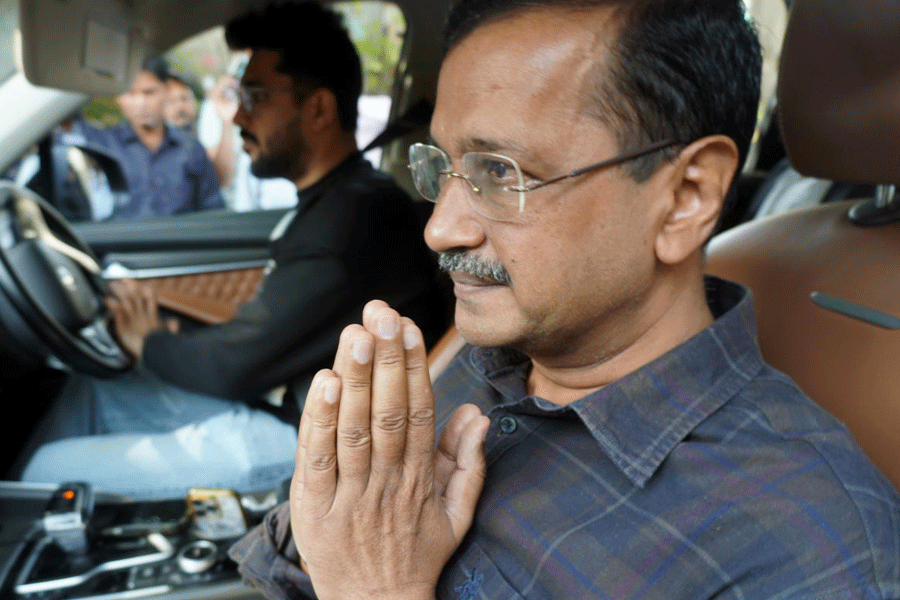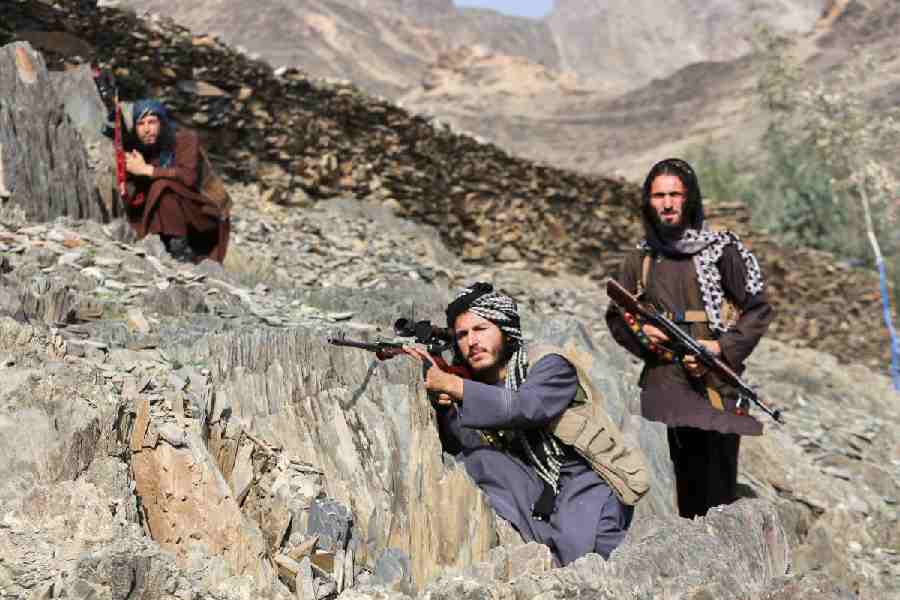I had only recently begun to write this column for The Telegraph when the war-drums began beating in the second half of 2002, signalling the lead-up to the invasion of Iraq. Reading some of those early columns now is both startling and instructive — how much has changed and how little, how some of the predictions were exactly right and how absurd and off-target the other ones now look.
I remain among those people who think that the post-9/11 invasion of Afghanistan was both justified and necessary. It wasn’t just about ‘what has been done to America and to New York.’ It wasn’t just about ‘what the Taliban is doing to its own people’ — though that was terrible, it could be argued, in terms of, say, oppressing the female population in which the Afghans were only slightly worse than the Saudis and the Iranians. What tilted the scales was that the Taliban regime was in a grotesque, open nexus with al-Qaida and Pakistan — Afghanistan was like a huge political nuclear plant in perpetual meltdown, radiating deadly poison in all directions, most lethally in its immediate neighbourhood.
What many Indians sensed even before the beginning of that invasion was that there was no ‘winning’ in Afghanistan without major changes being brought about in Pakistan as well. It rapidly became clear that yet another self-serving, know-nothing, bully-braggart of a Republican administration was the last bunch of operators the world needed in charge of the United States of America and of the invasion. We will never know what Al Gore might have done had he — as he should have — been the American president. Perhaps the intelligence failures that allowed 9/11 to take place might have been avoided; perhaps the response would have been more tempered, measured, its long-term implications better thought out; perhaps there would have been an understanding that the priority for ridding the world of this one kind of terrorism was that Pakistan be prised away from its military and its mullahs, even if that meant welcoming a government in Islamabad that wasn’t slavishly pro-American. Perhaps things might not have been conducted too differently vis-á-vis the Afghanistan invasion but certainly it’s hard to imagine a Gore/Democratic administration embarking on a comprehensive self-sabotage of that effort by attacking Saddam’s Iraq.
Those of us (there were many) who thought ‘Shock and awe’ was a disastrous idea and predicted the massive human devastation it would cause were right. Those who insisted that Saddam Hussein was an existential threat to the world and needed to be taken out on an emergency basis were horribly wrong. Those who claimed Saddam had weapons of mass destruction, from the president, secretary of state, defence secretary, vice-president and prime minister to their security mandarins, were brazenly lying. Those powerful people who supported these leaders either knew or sensed that the ‘evidence’ was dodgy, or they stupidly accepted the word of the people who were lying. It was a criminal lie, as was the attendant stupidity of the believers. It was a lie for which lakhs of innocent people paid (and are still paying) with their lives.
‘Shock and awe’ didn’t work out, not for the Americans, not for the countries in the Coalition of the Swilling, and certainly not for the Iraqis; it didn’t work out for the Kurds, the Syrians, the Libyans, the Palestinians or the Israelis. In its domino effect across time and geography, it worked out terribly for the vast majority of Afghans, for the majority of Pakistanis, and for most of us, Indians. It was, however, a bonanza for some US oil and security firms, for the Daesh/IS, for Putin-Yahu, and eventually for Eleven Ping, the King of Beijing, for the phoenix of Taliban 2.0, for Pakistan’s Fauji Inc, and, indirectly, for the sangh phalange of Nagpur.
What should have happened after the invading forces gained territorial control in Afghanistan simultaneously was a proper, inexorable and meticulous uprooting of the Taliban and the slow, non-headline-making installation of an alternative infrastructure for the Afghan people, including a health service and an effective education network. There should have been no unseemly hurry to have superficial show-elections or the installing of a puppet government that didn’t have popular backing. There should have been a thorough sealing off of the avenues through which Pakistan could continue its mischief of playing both sides at once. That would have meant a radical squeezing of the Pakistani army and the security establishment. All that eager-beaver willingness to effect ‘regime change’ in Baghdad would have been better directed at effecting a deep structural change in Islamabad-Rawalpindi. All this would have taken political energy, money, munitions and manpower, all of which got diverted instead to the self-engineered quagmire in Iraq.
As with a scenario in which Al Gore was the president, we will never know how things might have turned out had an American administration and its allies decided to focus solely on Afghanistan-Pakistan, going beyond short-term revenge, with some genuine intention of helping bring peace and prosperity to a deeply troubled region. We will never know what might have happened if some people had thought out of the box of short, sharp shock, followed by the quick installing of locals, followed by a ridiculous, yearslong attempt to withdraw ‘as quickly as possible.’ Twenty years after the Iraq invasion and twenty-two after the one in Afghanistan, we can only wonder where we might have been had the leading powers of the West understood that Afghanistan needed nurture under a UN mandate where a population roughly half that of West Bengal, or almost the same as that of Kerala, needed to be brought into the 21st century via several avenues and over decades before the intervening forces could up and leave. It should have been seen from the outset as a twenty-year project to be conducted by the international community.
Say the people of Afghanistan had received this sagacious help — no more than what they deserved, mind you — what would have happened in the meantime to a ‘Middle East’ still toxified by Saddam? Well, the growth of a modern, democratic culture in one of the most backward countries of the region would have been bound to have some positive effect on the neighbouring countries. The improving Afghanistan graph, twinned with the de-porcupining of Pakistan over the last two decades, might have seen the fever coming down a bit in the wider region. Ugly regimes, such as those of Saddam and Bashar al-Assad, might have collapsed under their own rotting weight. Other political forces, in India for example, might have found less purchase for their Islamophobic agendas, might have found it more difficult to come to power, and to retain that power. Perhaps this is a crazy idea, but I would suggest it is less lunatic than the notion that the military destruction of the Saddam regime would lead to peaceful democracy and ‘freedom’ spreading through the Gulf region like a benign wildfire.











